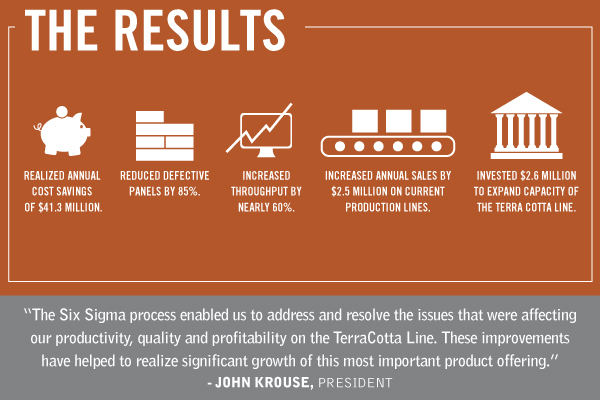Company
Boston Valley Terra Cotta is a manufacturer of architectural terra cotta masonry for new construction and renovated buildings. These product lines have long life and significant ornamental value. Products are manufactured several ways, including pressing, slip casting and extrusion, and are sold worldwide. Several local projects of particular note are the Electric Tower, Liberty Building and Roycroft Power House. The company is very committed to sustainability with its internal waste reduction initiatives and its efforts to provide LEED points through the products’ design and material content.
Situation
Boston Valley Terra Cotta experienced yield issues on its Terra Clad product line within the drying process. These issues contributed to excessive scrap, increased cost of quality, and intentional production overages to compensate for defective product. This situation was exacerbated by the fact that this product line was an essential part of the company’s growth strategy. It was believed a Six Sigma approach utilizing DMAIC (define, measure, analyze, improve, control) methodology would identify and subsequently reduce variation and lead time within the drying operation.
Solution
Utilizing Design of Experiment and other statistical tools, substantial data was generated and evaluated by the Insyte-led project team. Based on the data, several improvements were implemented within the dryer system and other areas that affected dryer performance and quality of the Terra Clad panels. Improvements included calibration of air movement within the dryers, lengthened dry time for panels over 60 inches, adjusting the formula for slate panels, and using perpendicular stacking of carts into the dryer. The group also established process controls to monitor and maintain these improvements.

